Spelling Skills Normal Phonics Worksheets for 7-Year-Olds
5 filtered results
-
From - To
Enhance your 7-year-old's spelling prowess with our engaging Spelling Skills Normal Phonics Worksheets. Specially crafted for early learners, these worksheets make mastering phonics fun and effective. Children will build strong spelling foundations by practicing various phonetic patterns, word structures, and vowel sounds. Bright, age-appropriate exercises capture young minds' attention, promoting better retention through repetition and playful learning. Ideal for both classroom and at-home use, our worksheets support continuous progression in reading and writing skills. Empower your child with the confidence to spell correctly and communicate more effectively, one fun worksheet at a time! Explore Spelling Skills Worksheets now!
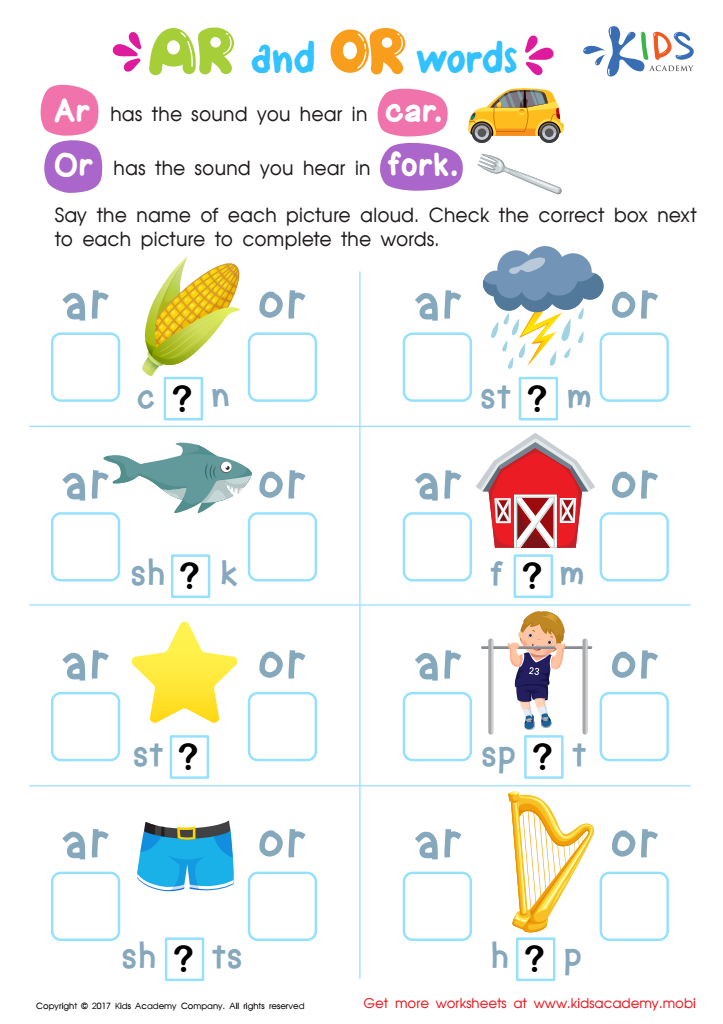

Ar and Or Words Phonics Worksheet
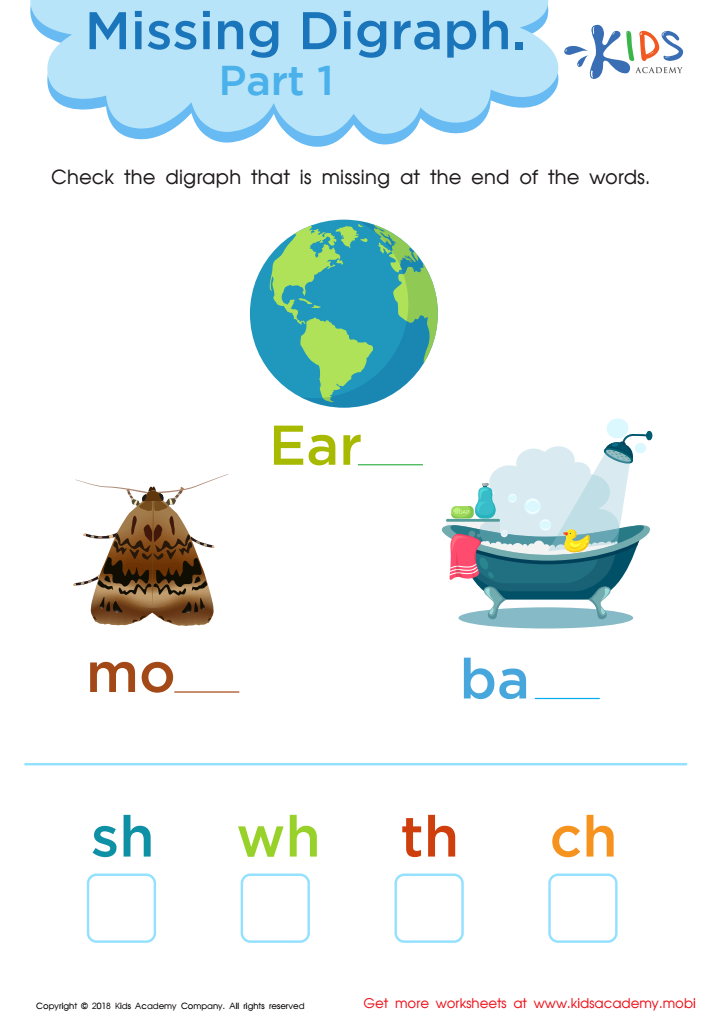

Missing Digraph: Part 1 Worksheet
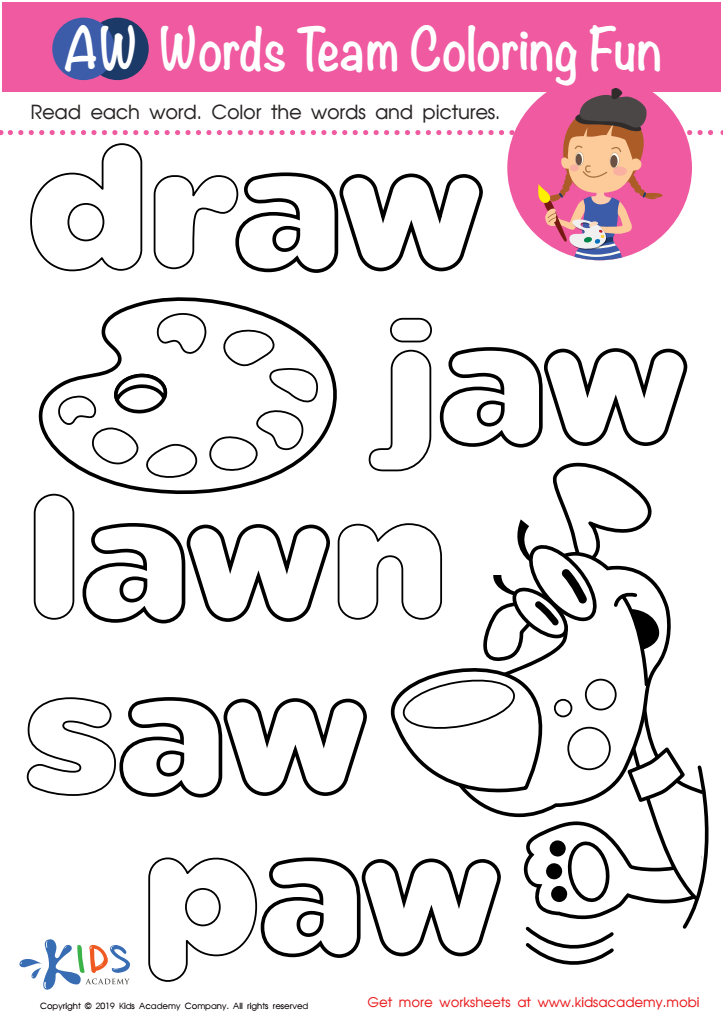

AW Words Team Coloring Fun Worksheet
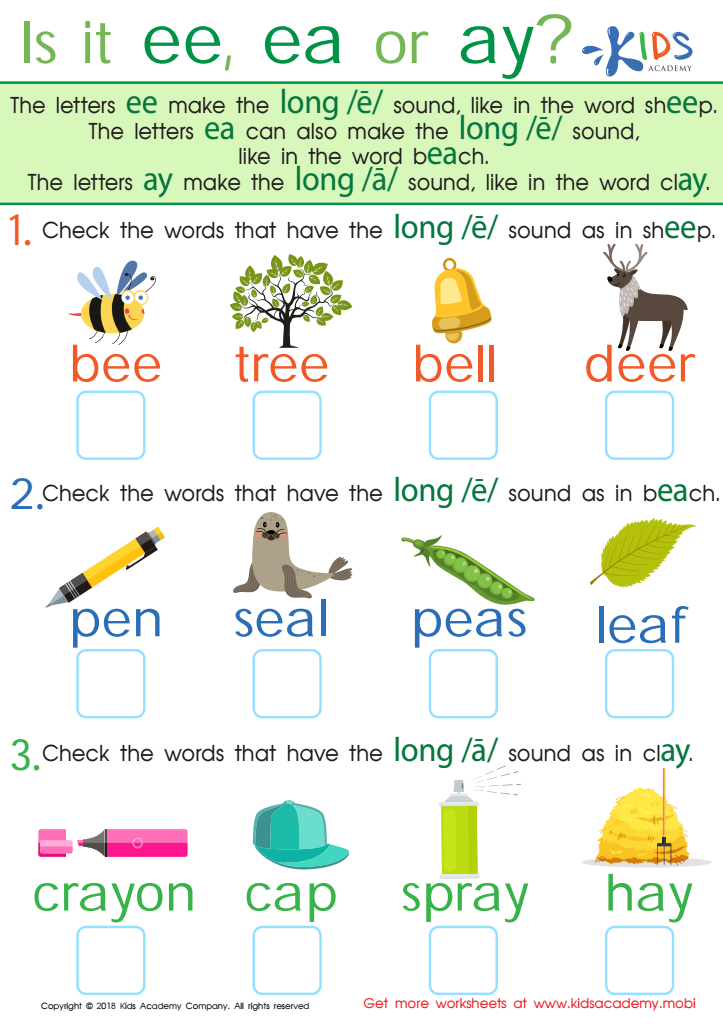

Is It EE, EA, or AY? Worksheet
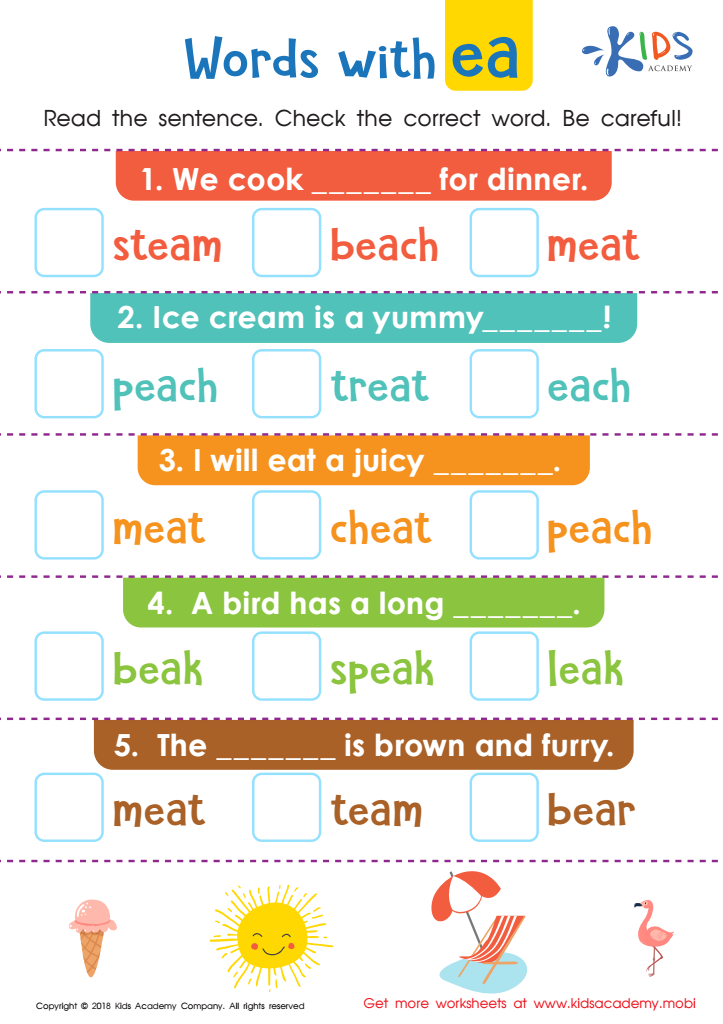

Words with ea Worksheet
Spelling skills and normal phonics understanding are crucial for 7-year-olds and deserve significant attention from both parents and teachers. At this pivotal age, children's brains are developing rapidly, and their ability to grasp phonics—the relationship between sounds and their spelling—is foundational for their literacy development. Mastering phonics aids in decoding unfamiliar words, enhancing reading fluency, and fostering comprehension, which is essential for academic success.
When parents and teachers prioritize spelling and phonics, they provide children with the tools to become confident readers. This confidence can lead to a positive attitude toward learning and greater participation in the classroom. Moreover, good spelling skills ensure that children can communicate their ideas clearly and effectively in writing.
Understanding phonics also supports vocabulary development, as recognizing patterns in words helps children to infer meanings and learn new words more easily. For children with reading difficulties or learning disabilities, early intervention with phonics-based instruction can be particularly beneficial, potentially reducing future academic struggles.
In essence, caring about spelling skills and phonics at this crucial age lays a secure foundation for ongoing literacy development, ensuring that children have the best possible start in their educational journey, which can have long-lasting effects on their overall academic and personal success.
 Assign to My Students
Assign to My Students














